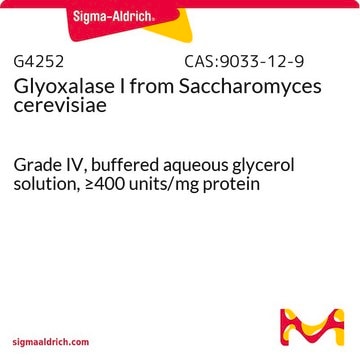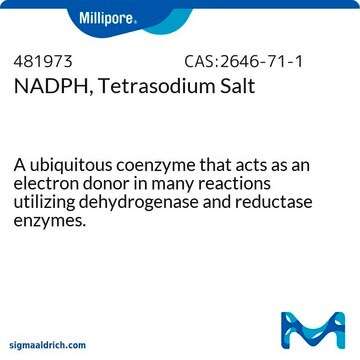MAK114
Glyoxalase I Activity Assay Kit
sufficient for 100 tests (UV)
Sinónimos:
Aldoketomutase Activity Assay, GLO1 Activity Assay, Ketone-Aldehyde Mutase, Activity Assa, Lactoylglutathione Lyase Activity Assay, Methylglyoxalase Activity Assay
About This Item
Productos recomendados
usage
sufficient for 100 tests (UV)
detection method
colorimetric
relevant disease(s)
cancer
storage temp.
−20°C
Gene Information
human ... GLO1(2739)
mouse ... GLO1(109801)
rat ... GLO1(294320)
General description
Application
Features and Benefits
Suitability
Principle
signalword
Warning
hcodes
Hazard Classifications
Eye Irrit. 2 - Muta. 2 - Skin Sens. 1
Storage Class
12 - Non Combustible Liquids
Certificados de análisis (COA)
Busque Certificados de análisis (COA) introduciendo el número de lote del producto. Los números de lote se encuentran en la etiqueta del producto después de las palabras «Lot» o «Batch»
¿Ya tiene este producto?
Encuentre la documentación para los productos que ha comprado recientemente en la Biblioteca de documentos.
Nuestro equipo de científicos tiene experiencia en todas las áreas de investigación: Ciencias de la vida, Ciencia de los materiales, Síntesis química, Cromatografía, Analítica y muchas otras.
Póngase en contacto con el Servicio técnico








